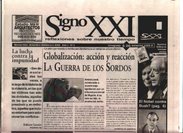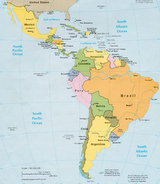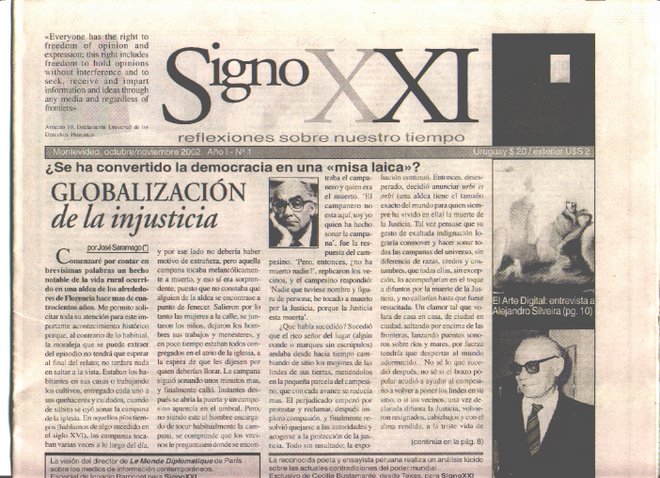Professors’ Liberalism Contagious? Maybe Not

April Kelly-Woessner and Matthew Woessner found teachers do not change students’ politics.
An article of faith among conservative critics of American universities has been that liberal professors politically indoctrinate their students. This conviction not only fueled the culture wars but has also led state lawmakers to consider requiring colleges to submit reports to the government detailing their progress in ensuring “intellectual diversity,” prompted universities to establish faculty positions devoted to conservatism and spurred the creation of a network of volunteer watchdogs to monitor “political correctness” on campuses.
Readers' Comments
Readers shared their thoughts on this article.
Just a few weeks ago Michael Barone, a fellow at the conservative American Enterprise Institute, warned in The Washington Times against “the liberal thugocracy,” arguing that today’s liberals seem to be taking “marching orders” from “college and university campuses.”
But a handful of new studies have found such worries to be overwrought. Three sets of researchers recently concluded that professors have virtually no impact on the political views and ideology of their students.
If there has been a conspiracy among liberal faculty members to influence students, “they’ve done a pretty bad job,” said A. Lee Fritschler, a professor of public policy at George Mason University and an author of the new book “Closed Minds? Politics and Ideology in American Universities” (Brookings Institution Press).
The notion that students are induced to move leftward “is a fantasy,” said Jeremy D. Mayer, another of the book’s authors. When it comes to shaping a young person’s political views, “it is really hard to change the mind of anyone over 15,” said Mr. Mayer, who did extensive research on faculty and students.
“Parents and family are the most important influence,” followed by the news media and peers, he said. “Professors are among the least influential.”
A study of nearly 7,000 students at 38 institutions published in the current PS: Political Science and Politics, the journal of the American Political Science Association, as well as a second study that has been accepted by the journal to run in April 2009, both reach similar conclusions.
“There is no evidence that an instructor’s views instigate political change among students,” Matthew Woessner and April Kelly-Woessner, a husband-and-wife team of political scientists who have frequently conducted research on politics in higher education, write in that second study.
Their work is often cited by people on both sides of the debate, not least because Mr. Woessner describes himself as politically conservative.
No one disputes that American academia is decidedly more liberal than the rest of the population, or that there is a detectable shift to the left among students during their college years. Still, both studies in the peer-reviewed PS, for example, found that changes in political ideology could not be attributed to proselytizing professors but rather to general trends among that age group. As Mack D. Mariani at Xavier University and Gordon J. Hewitt at Hamilton College write in the current issue, “Student political orientation does not change for a majority of students while in college, and for those that do change there is evidence that other factors have an effect on that change, such as gender and socioeconomic status.”
That may be, said Daniel Klein, an economist at George Mason, but those results don’t necessarily mean there isn’t a problem. Mr. Klein, whose research has shown that registered Democrats vastly outnumber Republicans among faculty in the humanities and social sciences at American colleges and universities, maintains that the focus on the liberal-conservative split is misdirected. Such terms are vague and can be used to describe everything from attitudes about religion and family to the arts and lifestyles, he said.
The real issue, said Mr. Klein, who calls himself a libertarian, is that social democratic ideas dominate universities — ideas that play down the importance of the individual and promote government intervention.
Such “academic groupthink” means that the works of such thinkers are not offered enough, he argues. “A major tragedy is that they’re not getting exposed to the good stuff,” he said, citing the works of John Stuart Mill, Adam Smith, Friedrich Hayek and Milton Friedman.
“Even if we had hard, definite evidence that students weren’t influenced by their professors, there is still reason for great concern about the composition of the faculty,” Mr. Klein added.
K. C. Johnson, a historian at the City University of New York, characterizes the problem as pedagogical, not political. Entire fields of study, from traditional literary analysis to political and military history, are simply not widely taught anymore, Mr. Johnson contended: “Even students who want to learn don’t have the opportunity because there are no specialists on the faculty to take courses from.”
“The conservative critics are inventing a straw man that doesn’t exist and are missing the real problem that does,” he added.
Anne Neal, the president of the American Council of Trustees and Alumni, which closely follows this issue, agrees that “it is not about left and right.”
Many researchers and critics also agree that a better grounding in American history and politics is important. “It wasn’t too long ago that schools and universities required civic education and American history,” Mr. Fritschler noted. “Almost all of those requirements have evaporated.”
A number of organizations that have a large base of conservative supporters, like Ms. Neal’s council and the National Association of Scholars, have been promoting a return to traditional courses in western civilization and American history.
Mr. Fritschler said that perhaps the most insidious side effect of assumptions about liberal influence has been an overall disengagement on campus from civic and political affairs, and a reluctance to promote serious debate of political issues. If anything, he added, the problem is not too much politics, but too little.
Ir al Sitio principal Escritos críticos / Ensayos
www.majfud.50megs.com
Reflexiones sobre nuestro tiempo
-------------------------------------------------




No hay comentarios.:
Publicar un comentario